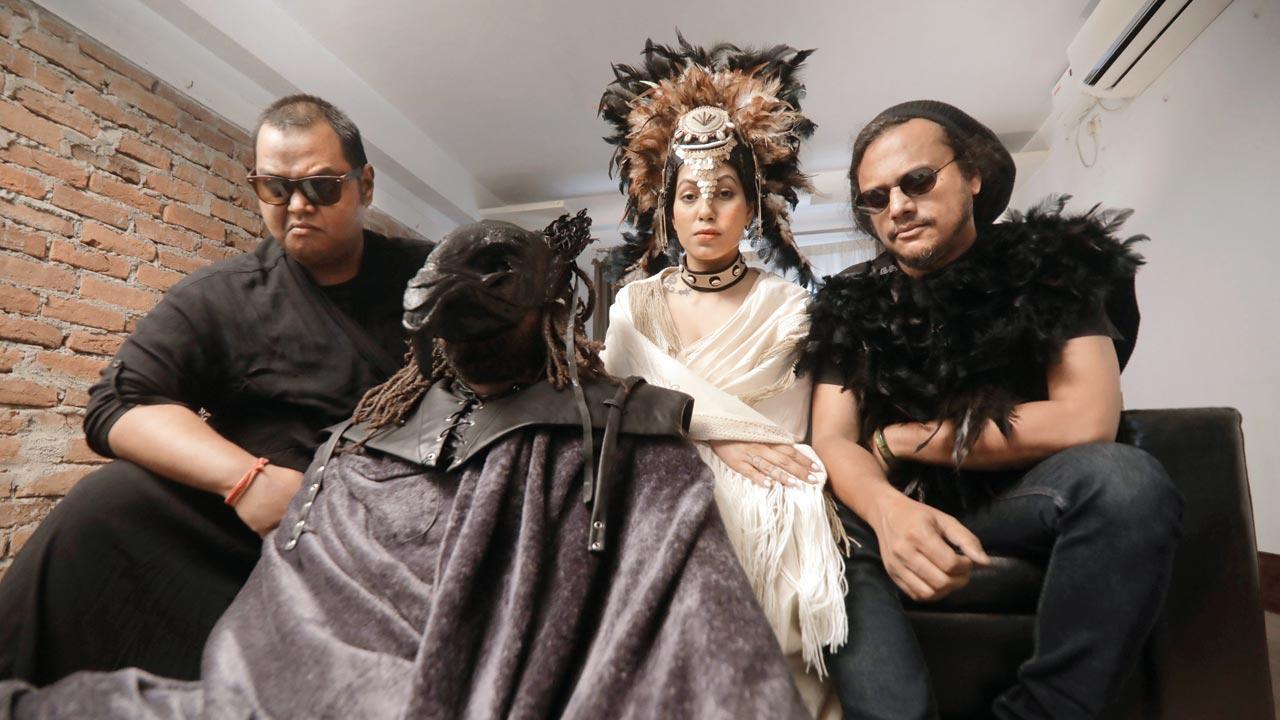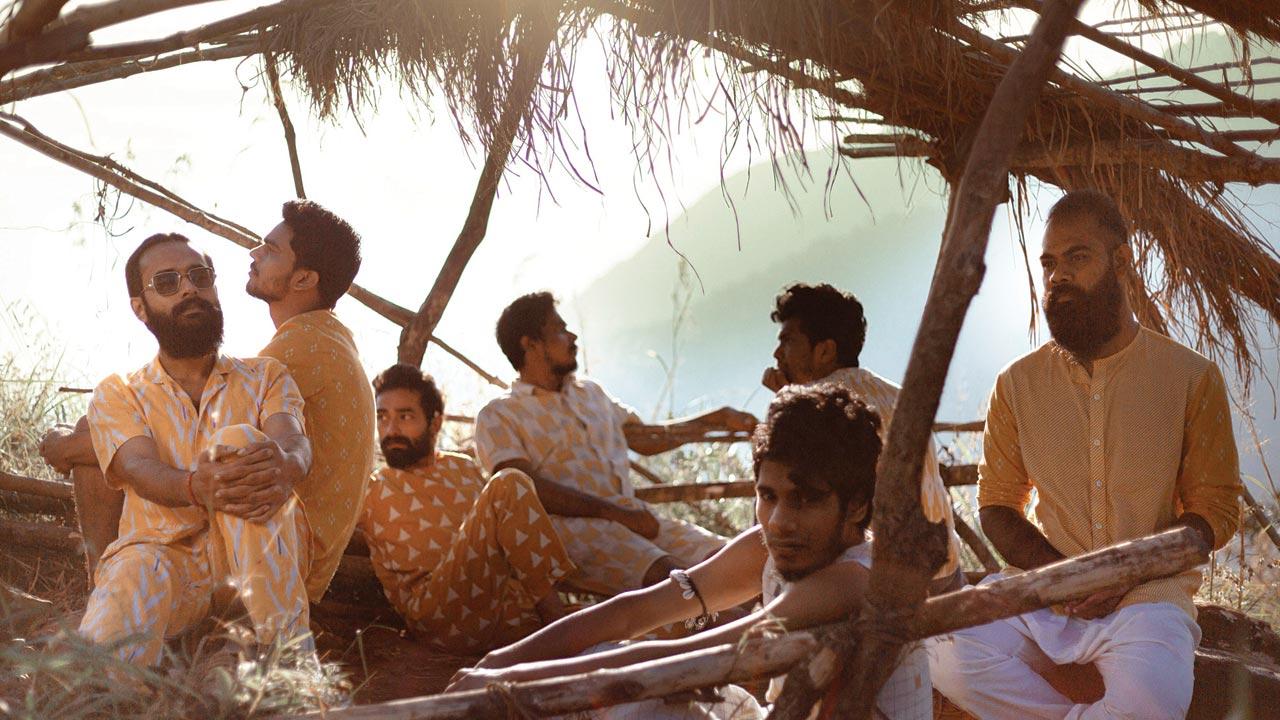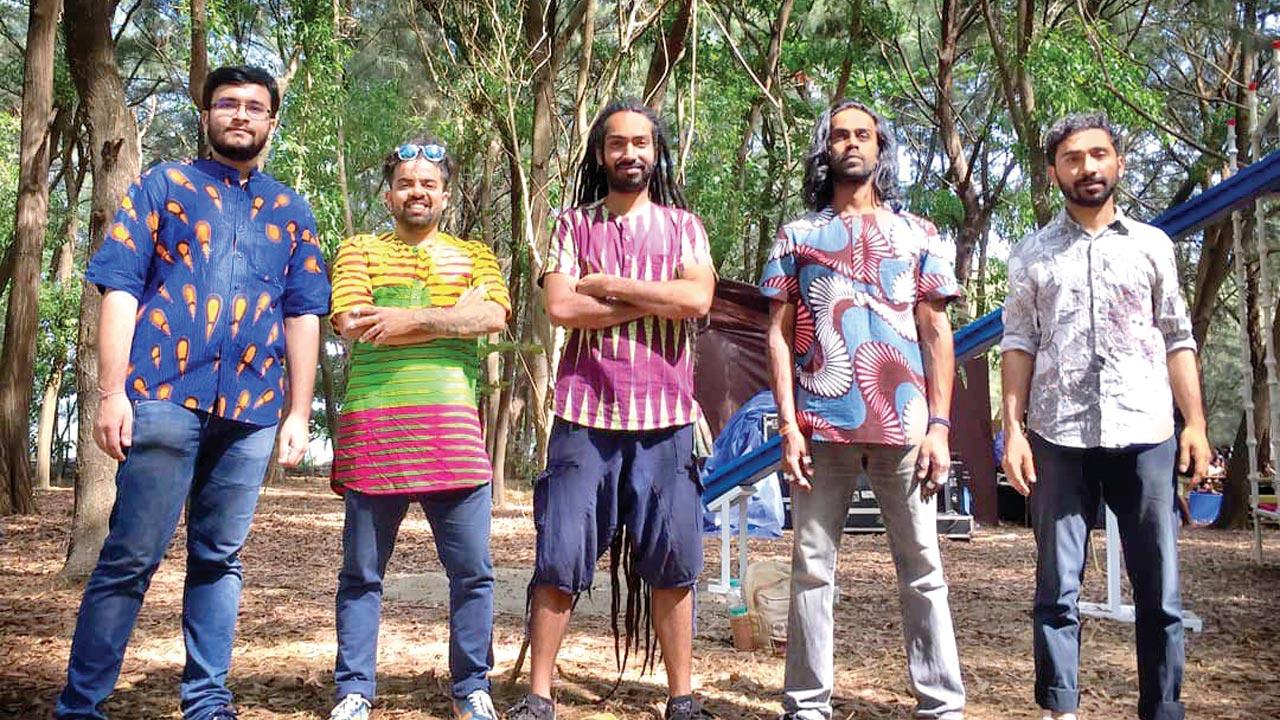India is seeing indie bands embrace a smorgasbord of folk instruments from across the world, developing a sound that’s a little bit of this and that but totally unique

Experimental avant-garde, theatrical band Serpents of Pakhangba incorporate Mongolian, Tibetan and north-eastern influences
The music band Serpents of Pakhangba has an interesting story behind its name. Pakhangba refers to the ancient shape-shifting dragon god from a Manipuri tribe. Founder of the band, Vishal J Singh says that his ancestors have worshipped the deity for centuries. The indigenous cultural influence goes beyond the name. Singh says the four-member band is experimental, avant-garde, theatrical and incorporates Mongolian, Tibetan, Manipuri symbolism and sounds. “The nature of our band is similar to that of [the shape-shifting dragon] god. It is multi genre, jazz, neo-folk, dark-folk, futuristic yet ancient, using ambient elements, black metal, death metal... anything you can think of.”
Singh is part of a growing tribe of musicians who are finding inspiration in film culture and indigenous communities.
 Kerala-based tribal/ folk trance music band, Shanka Tribe derives its name from shankh
Kerala-based tribal/ folk trance music band, Shanka Tribe derives its name from shankh
Shanka Tribe, a Kerala-based tribal/folk trance outfit derives its name from the conch because some of the band members hold a personal connection with it. Thus, the band always begins a performance by blowing the shankh, displaying the Indian belief that it has a cleansing and spiritual effect and radiates positivity.
Serpents of Pakhangba, too, say that they try and connect with the audience on a spiritual level. While most of their music is instrumental and includes ancient Manipuri chants and hymns, they also recently incorporate something called ‘light language.’ Tanushree ‘Shree’ Saha, the vocalist, uses this language which is increasingly being used by healers and those who practise chanting. “People who channel from other systems [star/solar systems] basically channel light language. It’s possible that somebody might be able to connect with the person without even knowing what’s being said. It’s an energy based transaction,” she explains. Emotions and expressions play an important role in the band’s music. Singh says, the audience might not understand the words but they can connect with the expression, and that’s part of the theatrical performance along with elaborate headgears and costumes the band uses during live performances. They study the crowd, making no two live performances the same.
 Boombay Djembe Folas play West African tribal folk music infused with their own sound
Boombay Djembe Folas play West African tribal folk music infused with their own sound
Boombay Djembe Folas play West African tribal folk music infused with their own sound. Most of their music is instrumental and percussive but they have a few songs in Djoula, the most widely spread languages spoken in West Africa. The band has performed at prestigious festivals NH7 Weekender, Lil Flea, VH1 Supersonic, Control Alt Del and Goa Unsplash and what Anand Bhagat, its founder, has noticed is that, “the Hindi bracket is quite huge but the audiences also seem quite keen and interested in our kind of music.” They make sure their sound is groovy, and a little psychedelic sometimes. The biggest concern, according to Bhagat who is also the only Indian to play the balafon (a wooden xylophone) is maintaining these instruments. The band uses the djembe (a West African goblet shaped drum) dununs (West African instrument similar to a dhol) the balafon, the guitar and violin. “The Balafon is not available in India. We have proper west African djembes and the dununs drums we got made in India,” says Bhagat. Shanka Tribe, who has also had to ship some instruments from other countries, use the didgeridoo (a long wind instrument), oud (pear-shaped fretless string instrument), murchang (traditional Nepali instrument), percussive instruments like the djembe, darbuka, congo and timbale, the synthesizer and handpan.
“The downside of using so many varied instruments is that travelling with them is a bother. We can’t travel all that much. The soundcheck takes a lot of time too,” says Bonny Abraham, the lead guitarist and oud player. Singh, who has also experimented with the valiha, a string instrument from Madagascar, pena, a Manipuri instrument, tank drums, kazoo, a mouth-peice and the erhu, a Chinese instrument, says travelling with a full band is a challenge but an audience for this varied music exists, nudging the group some more into bringing on board new instruments.
 Subscribe today by clicking the link and stay updated with the latest news!" Click here!
Subscribe today by clicking the link and stay updated with the latest news!" Click here!








